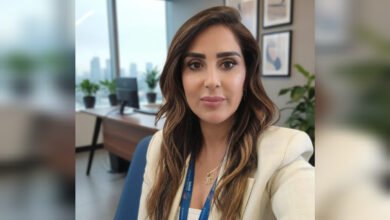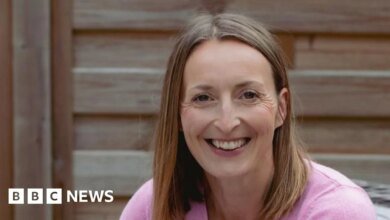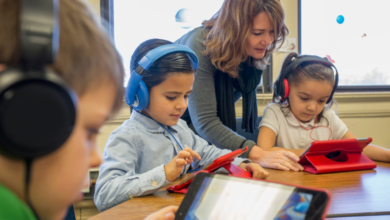Northumberland Parents Learn Self Defence Against Their Children
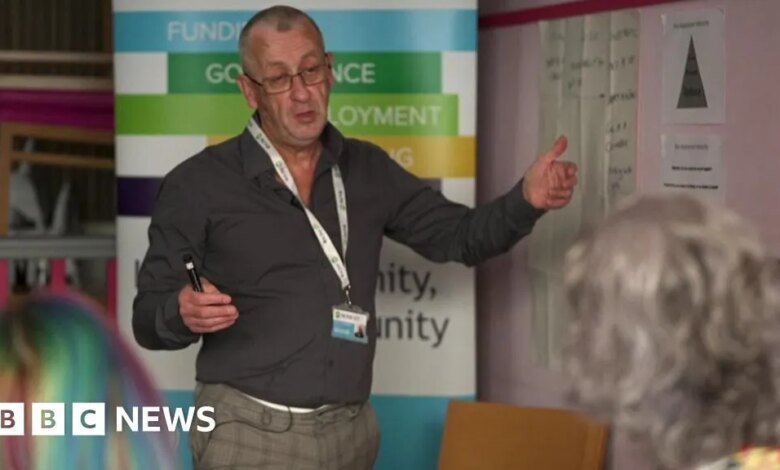
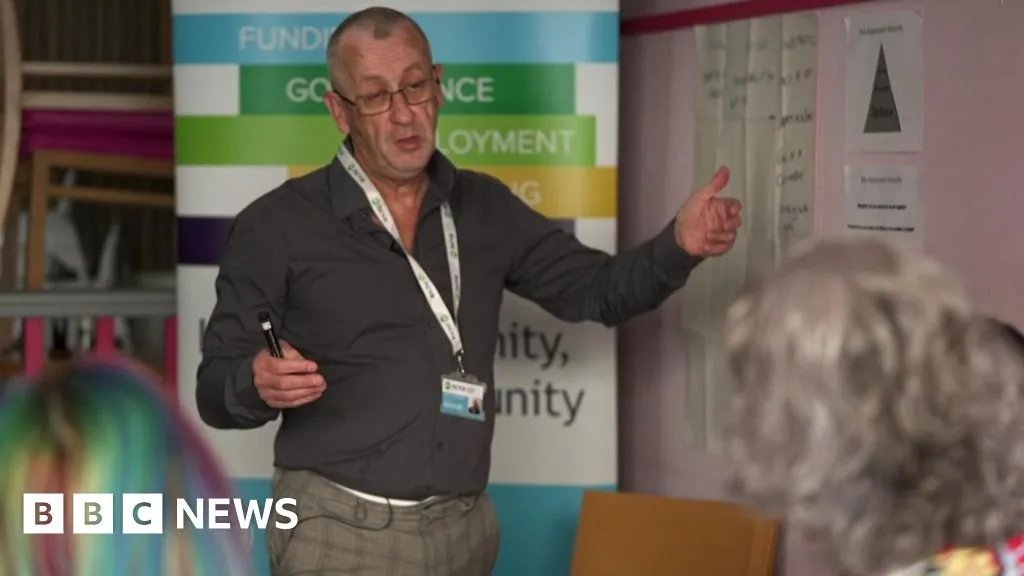
uaetodaynews.com — Northumberland parents learn self defence against their children
Helen RichardsonNorth East and Cumbria political reporter
A group of parents have been attending classes to learn how to protect themselves from violent behaviour from their own children.
One mother who joined the course in Northumberland said the lessons were “invaluable” and support from other families in the same situation “felt like taking off a heavy coat”.
Parental Education Growth Support (PEGS), another group which provides guidance for parents facing violence from their children, said the number of families asking for help had tripled over the past three years.
The government has pledged to tackle child-on-parent abuse and make sure problematic behaviours are identified early.
A former doorman from Blyth, Tony MacDonald delivered training to staff in children’s homes 15 years ago and now volunteers with the charity Northumberland Community and Voluntary Action.
He decided to offer his course to parents for free after hearing mother Lindsey Brown describe how she and her husband had been physically assaulted by their son, pinned to the floor, concussed and cut.
“It was a cry for help,” he said.
“I really saw the effect (her son’s violence) had on her and I thought I can help.”
Eight parents at the first session said they were there because they needed urgent advice on how to stay safe at home.
They were given practical guidance, such as suggesting they move breakable items and knives to safe places. But they also learned about the potential impact of their own body language and tone of voice and were taught techniques designed to safely de-escalate volatile situations.
Mrs Brown found everything Mr MacDonald said “just clicked”.
“I already knew a lot of it, but the validation removed so much self-doubt,” she said.
“It means that people have seen your struggles, acknowledged them, and are trying to help.”
Mrs Brown said being with other parents facing the same difficulties helped her and her husband feel “we weren’t alone anymore”.
“Being in that room with other parents felt like taking off a heavy coat I didn’t even know I was wearing,” she said.
“We could talk, laugh, cry and finally start to understand why things happen, not just react to them.”
An independent social worker from Cramlington, Al Coates, said families in this situation were left feeling isolated.
“They feel blamed, they feel shamed,” he said.
Creating “peer communities” reduces the isolation and allows families to share knowledge.
Mr Coates also believes families should have intensive, ongoing support with services that “span across a childhood”.
Parents may be able to manage difficult behaviour with a small child “but then they become a 13-year-old and there are new challenges”, he said.
PEGS said, three years ago, it was being contacted by 1,200 families a year looking for support.
Last year that figure had risen to more than 4,000 a year.
County Durham-based therapist Ingrid Ayling Ford, who teaches a therapeutic approach called non violent resistance (NVR), said she had “never seen this level of substantial violence towards parents” that she was now.
“It’s not just a push,” she said.
“It’s ‘I’m going to stab you in your sleep’ – that’s terrifying.”
There is no legal definition for child-on-parent violence and no authority has a statutory duty to help.
Most councils offer parenting courses, such as the Respect Young People’s Programme and Revive Family and Youth Services, but some may not offer any tailored support specifically for families experiencing violence from their children.
A few authorities and NHS trusts offer lessons in NVR, but most provision of this is private.
Northumberland County Council said it had a multi-agency Child to Parent Violence and Aggression steering group and offered a range of services for families.
In a statement, Home Office minister Jess Phillips said the government had “pledged to tackle child to parent abuse through an effective system to ensure problematic behaviours and victims are identified early” and in which services responded effectively.
According to Durham University assistant sociology professor Nikki Rutter parents are “crying out for help”, often for a number of years, and “nothing is being done”.
Early intervention was preferable but was currently “very rarely occurring in many local authorities”, Ms Rutter said.
There were some “really excellent pockets of practice” but a lack of official systems to provide help early enough.
Without a statutory duty, services could say an issue was not their responsibility or they were not commissioned to provide support, she added.
“For families, it can feel like there is no way out.”
Disclaimer: This news article has been republished exactly as it appeared on its original source, without any modification.
We do not take any responsibility for its content, which remains solely the responsibility of the original publisher.
Disclaimer: This news article has been republished exactly as it appeared on its original source, without any modification.
We do not take any responsibility for its content, which remains solely the responsibility of the original publisher.
Author: uaetodaynews
Published on: 2025-10-14 08:48:00
Source: uaetodaynews.com


